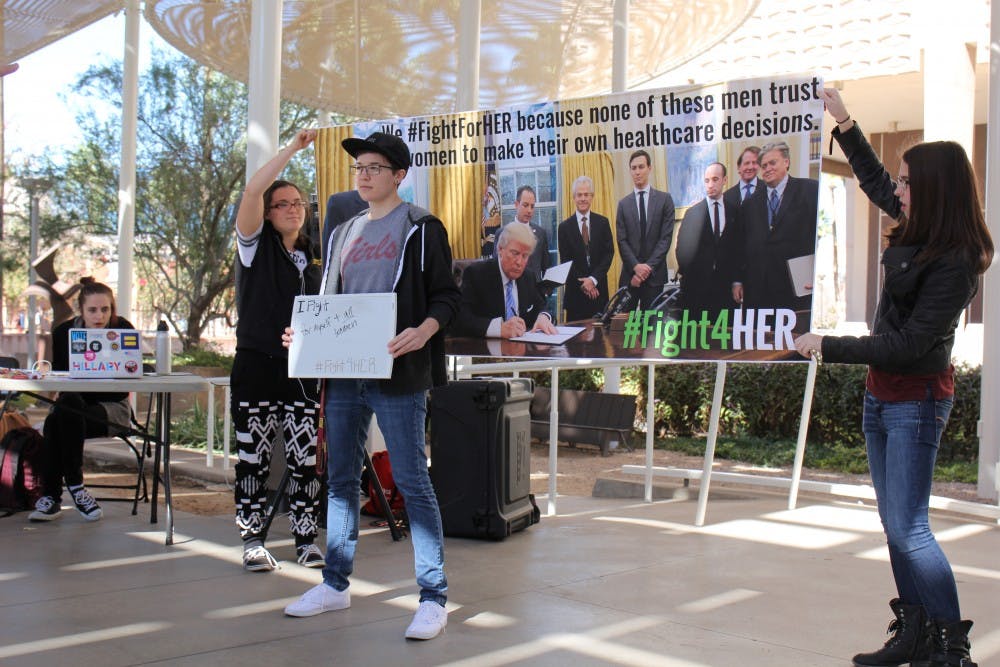Student activists around ASU could experience stricter laws when gathering petitions if House Bill 2404, a bill banning per-signature payment in the state of Arizona, becomes law.
HB 2404 introduced by Rep. Vince Leach (R-Tucson), prohibits per-signature payments to petition circulators and classifies it as a class one misdemeanor in the state of Arizona. According to Leach, the goal of the the new bill is to eliminate any kind of fraud in the system.
The bill passed the Arizona Senate on Wednesday afternoon, after passing in the House on February 23.
The bill also extends the time of which any person is allowed to challenge a circulator’s lawful registration from 5 to 10 days.
Paid circulators are defined as anyone who receives money based on signatures on a petition. This definition excludes paid employees of any political committees and circulators who are contracted to do petition work. Those who are contracted to do petition work will have to register with the Secretary of State.
“Signature fraud (has) been a problem since at least 2009 when former Gov. Janet Napolitano first called for a prohibition on paying petition circulators per signature,” said Matthew Specht, director of communications for the Arizona House of Representatives.
Specht said that Napolitano called for a crackdown on signature fraud in 2009 during her State of the State address.
He said that this should not affect the ability of activism groups to raise awareness for their causes.
“HB 2404 doesn’t address or affect the ability of activist groups to raise awareness for their causes,” Specht said. “It would simply prohibit the payment of petition circulators per signature and clarify the amount of time that citizens have to challenge the validity of petition signatures.”
Students organizers at ASU are reacting negatively to the stricter rules for gathering petitions.
Randy Perez, a political science and public policy junior, said that this new law is an attack on local voters and progressive issues.
“What we’ve seen from the Arizona legislation is a complete lack of trust,” Perez said. “This makes it infinitely harder to pass initiatives.”
Perez said that it is difficult going out collecting signatures and that payment can definitely be used as a motivator.
“I knocked on 20,000 doors last year, and I collected close to 1,000 signatures last year,” Perez said. “I would have not had the capacity to do that if I was not getting paid.”
Jessica Roberson, a junior double majoring in anthropology and English literature with a minor in justice studies, is the vice president of Amnesty International’s ASU chapter. Roberson also echoed the already challenging efforts of collecting signatures for a petition.
“It’s a full-time job a lot of the times,” Roberson said. “Trying to convince students is hard, then you have to deal with paperwork.”
Roberson dislikes HB 2404, saying that it can be a bit scary since the restrictions make it harder for grassroots activism to gain attention.
“It restricts certain voices in certain communities,” Roberson said. “They are protecting certain kind of politicians and big companies by restricting small communities.”
Reach the reporter at Victor.ren@asu.edu and follow @MrVictorRen on Twitter.
Like The State Press on Facebook and follow @statepress on Twitter.




